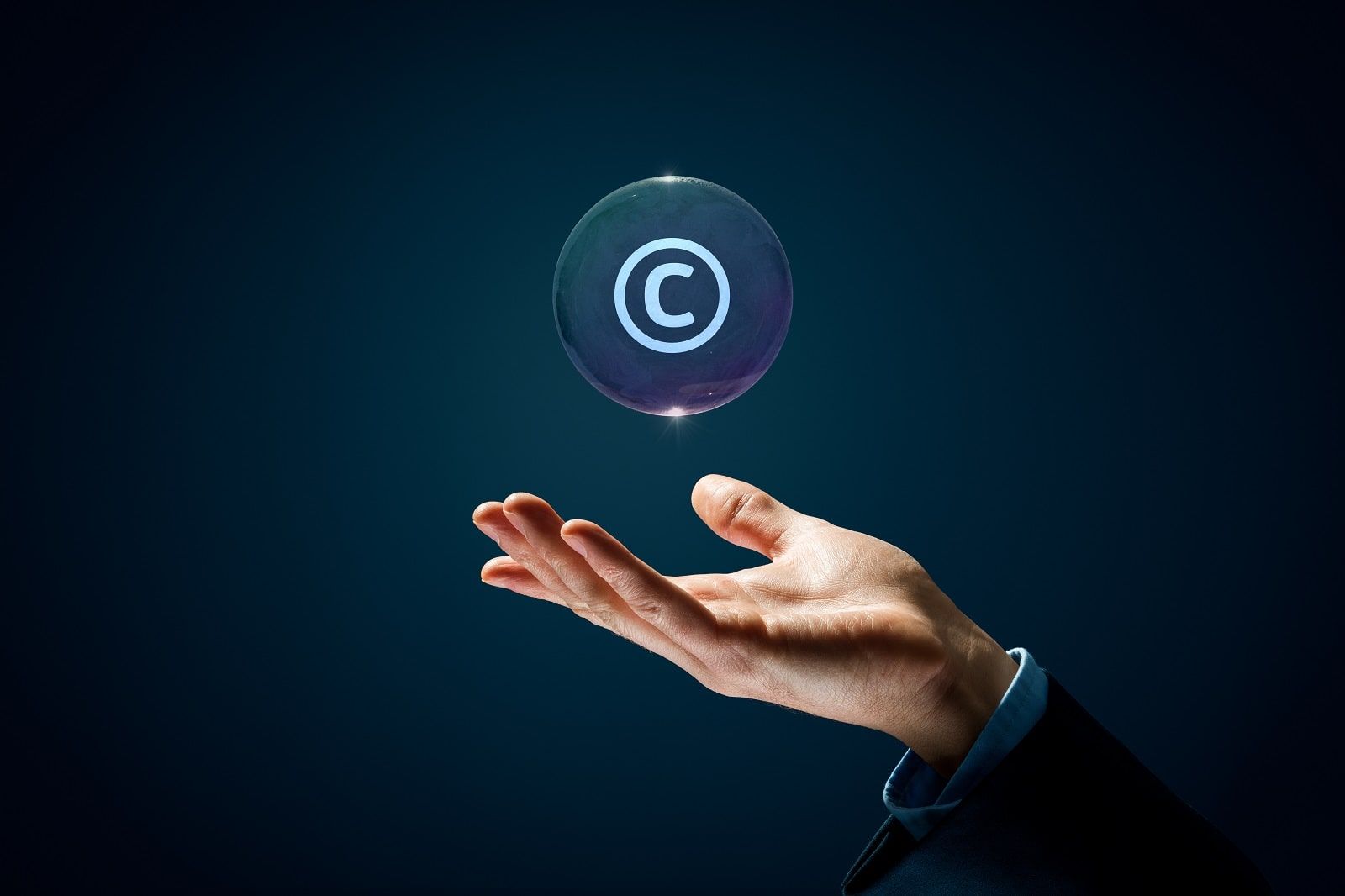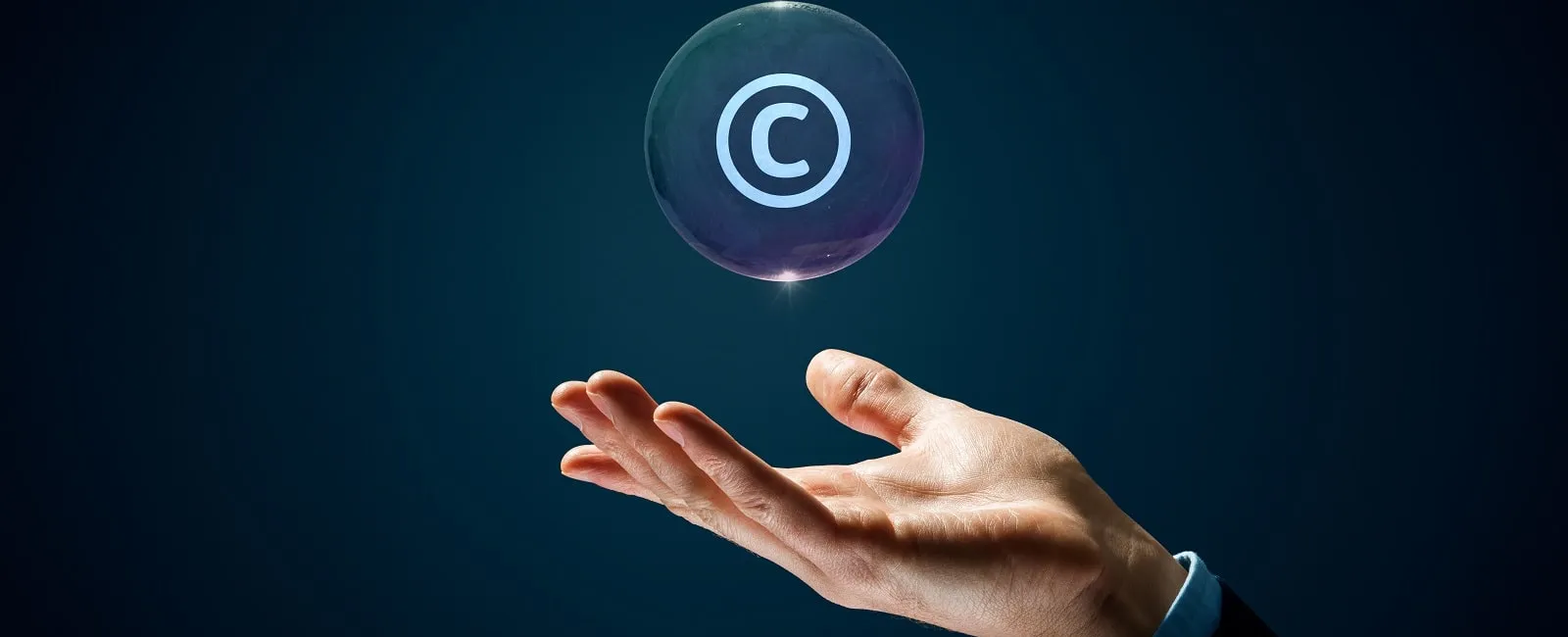If you've ever watched a football game, you've likely heard them announce that the telecast is copyrighted by the NFL. With this notice, the NFL is protecting itself against copyright infringement. You can find similar notices on recorded music, movies, television, and books.
But what exactly is copyright infringement?

What is Copyright Infringement?
To understand copyright infringement, first, we must define "infringe." An infringement is an action that limits or undermines someone or something. It is also the action of breaking the terms of an agreement or law.
Copyright infringement (also known as piracy) is the use of works used without permission by those who produced them. These can be cases where the work is reproduced, performed, distributed, made into a derivative work, or even displayed without the original creator's permission.
The words most associated with copyright infringement are "piracy" and "theft". The term "piracy" has been around since the 1700s and predates the idea of infringement. Courts and legislators don't quite see infringement as theft. The argument is that the owner of the copyrighted work isn't having anything physically taken from them, therefore it is not theft. Per the ruling in Dowling v. United States: "Interference with copyright does not easily equate with theft, conversion, or fraud. The Copyright Act even employs a separate term of art to define one who misappropriates a copyright."
Copyright infringements being seen as theft gained some traction in the 1980s when the slogan "piracy is theft" became a trend. It is a slogan that is still used today, however, it has not changed the minds of the courts or legislators.
Copyright Infringement in Modern Times
You might be thinking that with the success of things like YouTube, Twitter, Instagram, Facebook, and other social media outlets, copyright infringement is likely everywhere. It is — so much so that copyright holders have changed how and who they target when it comes to copyright infringement.
Advancements in technology have seen copyright infringement get to the point where it is so widespread that you couldn't possibly catch everyone who violated copyright laws. So, instead of going after individuals, publishers are trying to make copyright laws more wide-ranging to punish service providers and software developers who use infringed material, or people who are indirectly committing copyright infringement (such as Facebook, YouTube. etc.).
What Are the Consequences of Copyright Infringement?
Copyright infringement is generally settled one of three ways:
- Direct negotiation. This could or could not include monetary compensation.
- Takedown notice. A platform or user will receive an official notice from the DCMA (Defense Contract Management Agency) to remove the copyrighted material.
- Civil court. A person can be sued for violating copyright law.
If you're found guilty of violating copyright law, you'll be subject to pay a fine of anywhere between $750 and $30,000 for each case that you're found guilty of. You are also responsible for all court and attorney fees.
A more severe form of copyright infringement, called "willful infringement," could lead to criminal charges. If found guilty of willful infringement, you could be charged with up to five years in prison and with paying a fine of up to $250,000 per offense committed.
Law regarding willful infringement changed in 2016 as a result of the Supreme Court case Halo Electronics, Inc. v. Pulse Electronics, Inc. Before that case, patent holders had to have "clear and convincing evidence" as proof that their work was stolen. The 2016 ruling abandoned the idea of "objective recklessness" in favor of "willful intent." Holding a patent gives you the benefit of 20 years of protection against copyright infringement, and the 2016 ruling makes it that much easier to prove when someone has stolen your idea or product.
To learn more about infringement meaning and how to avoid infringement issues, get in touch with the Krogh & Decker, LLP team today.
